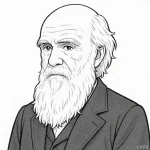“I care not much for a man’s religion whose dog and cat are not the better for it.”

- February 12, 1809 – April 15, 1865
- American
- The 16th President of the United States, Politician, lawyer
table of contents
Quote
“I care not much for a man’s religion whose dog and cat are not the better for it.”
Explanation
In this quote, Abraham Lincoln emphasizes the importance of kindness and compassion as key aspects of genuine morality and religious belief. By referencing the treatment of a man’s dog and cat, Lincoln highlights that true religious faith is not just about outward displays or rituals, but about how one’s beliefs translate into actions towards others—including animals. This statement suggests that if a person’s religion does not encourage compassion toward all living creatures, then its authenticity and value are questionable.
In the context of Lincoln’s time, this reflects the growing moral consciousness around issues of empathy and humane treatment. While slavery was the central moral and political issue of his era, Lincoln’s words imply that true moral character is not confined to human relationships alone. The sentiment aligns with his broader views on justice and humanity, which extended to all people and beings, regardless of race or social status. It also subtly critiques hypocrisy, challenging individuals to live according to the values they profess, not just in human relationships, but also in their treatment of animals.
In modern application, this quote resonates in debates surrounding animal rights and ethics. It suggests that religious or moral teachings should be reflected in every aspect of one’s behavior, including how we treat animals, and can be seen as a precursor to contemporary movements advocating for animal welfare. In a broader sense, Lincoln’s perspective encourages individuals to examine their actions and ensure that their professed values are reflected in their everyday treatment of all living beings, human or animal.
Would you like to share your impressions or related stories about this quote in the comments section?


